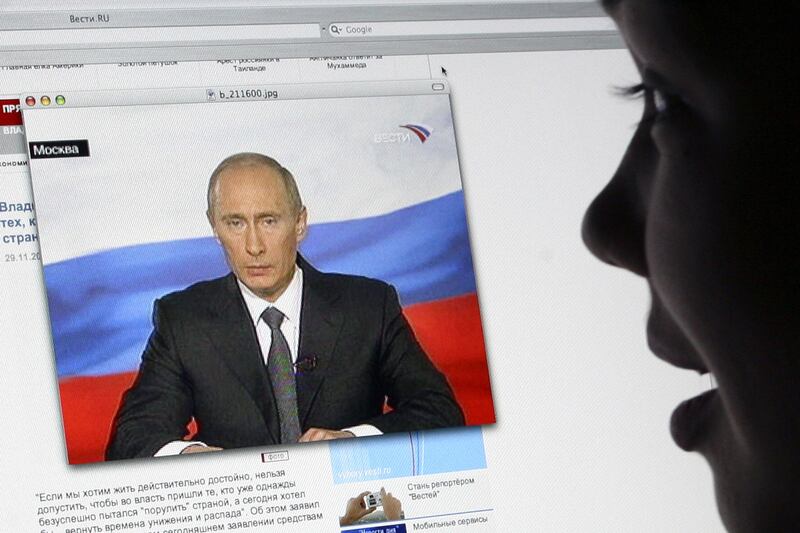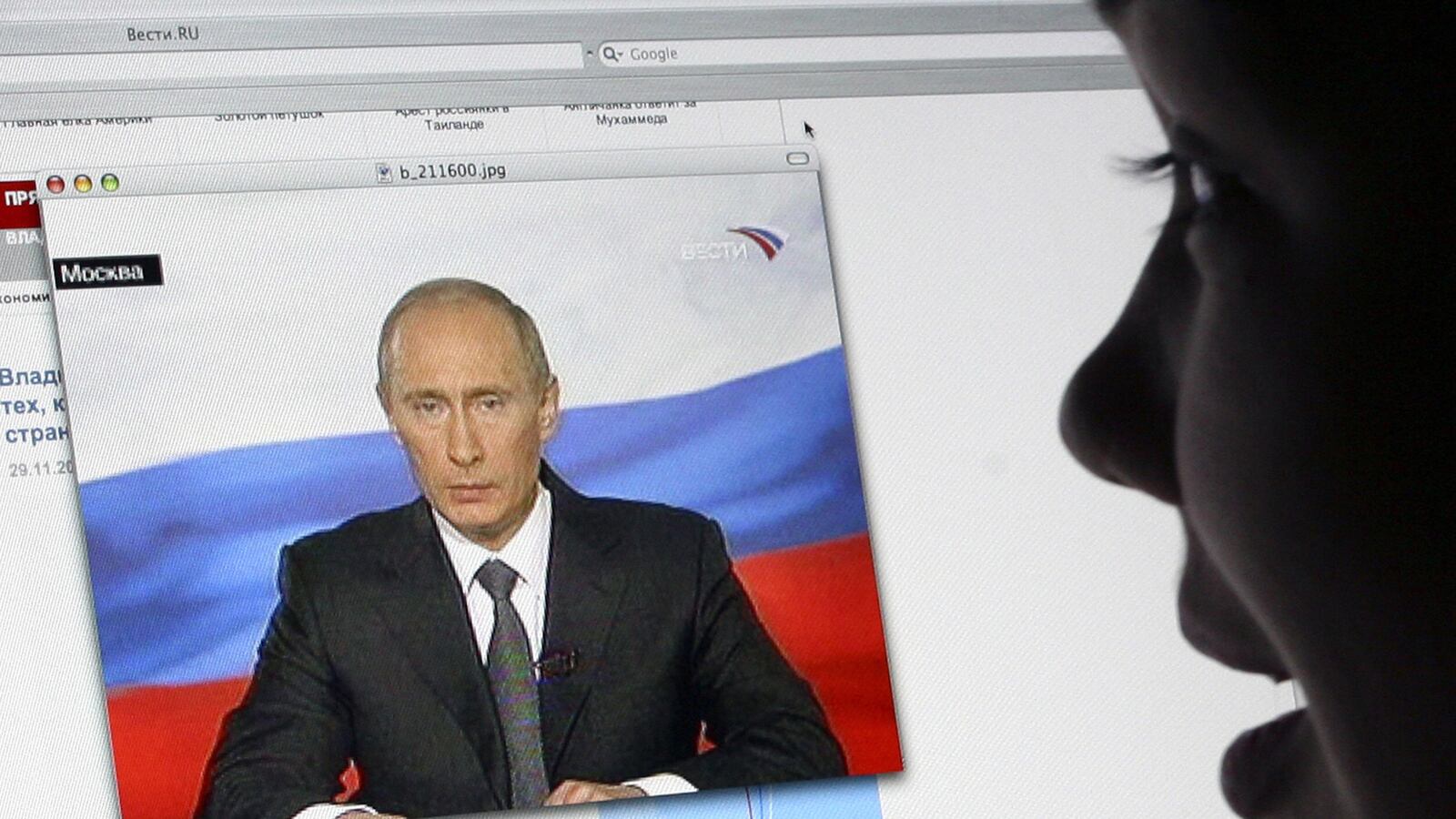On Thursday, Vladimir Putin asserted that the Internet was really a CIA project. I know it sounds crazy, but maybe he’s on to something.

We all know the official story. The Internet—and its precursor, the Arpanet—began as a Pentagon-funded network of machines used by academics, military computer scientists and other assorted nerds way back in the late 1960s and early 1970s. Then one day someone figured out you could put porn on it, and before you know it: “You’ve got mail.”
And the official story is a source of national pride. The computer revolution began inside the garages of middle-class California hamlets and blossomed with a dash of elbow grease and plucky determination into eBay, Facebook and World of Warcraft.
Most world leaders would probably be content allowing Americans to believe this myth, preferring our people to be happy and stupid. But not Vladimir Putin. He knows that the truth shall make us free, to borrow a phrase from the CIA’s unofficial motto.
So consider the following facts. Before everyone was online, the CIA and its frenemies in the NSA had to actually go through quite a bit of work to learn what its opponents were up to. Tapping phones, convincing disloyal foreign military officers to hand over documents and planting crude listening devices is very labor intensive, not to mention risky. These days all of that messy, dangerous work can be accomplished with a well-placed virus hiding inside an email promising a source of cheap Viagra.
Also, who knew in 1987 that so many people would use the Internet to willingly share every mundane detail of their daily lives with the public? Allen Dulles probably would have loved nothing more than for Nikita Khrushchev to open up a Facebook account. Update: Just gave secret speech denouncing excesses of Comrade Josef Stalin. It makes one wonder if Mark Zuckerberg dropped out of Harvard to take up a semester at the Farm. (Just asking the question here.)
Finally, consider this. From Putin’s perspective, the Internet has been a source of disinformation. He has been assuring the world for weeks that Moscow is just a friendly observer to the chaos in Ukraine. And yet every day there are new photographs and reports posting on Twitter that suggest his own Russian Spetsnaz forces are stoking the unrest. Is all of this just some coincidence? Cui bono?
Now it’s important to remember that for the CIA there are really two kinds of scandals. The first kind is when the CIA fails to predict or prepare the U.S. president for a major world event. Think of the infamous August 1978 CIA assessment that asserted Iran was not in a revolutionary or pre-revolutionary state. A more recent example would be the CIA’s initial cluelessness when confronted with the Arab Spring, which is strange because the initial spark for those revolutions was at least expressed and organized on the Internet. (Hmm, maybe that’s not scandal at all.)
Then there is the second kind of CIA scandal, when the agency is caught doing something that it had hoped would be kept secret, like using the profits from illicit weapons sales to Iran to fund and arm anti-communist rebels in Nicaragua. This whole Internet thing is in the second category.
And who knows? The agency would probably have gotten away with it too if Putin hadn’t spilled the beans. But Putin is playing a longer game here. He knows that Russia—with its meager natural resources and cramped borders—couldn’t possibly compete with the CIA’s Internet operation. Putin’s only card is to try to expose the agency’s lawlessness and hope these disclosures will finally prompt Congress to demand real reforms and end this national nightmare of cat listicles and online banking.
I am not surprised that most journalists are mocking Putin for speaking truth to power. But we at The Daily Beast have come to praise him. The CIA is the only agency left that could pull off something as complex and well planned an operation as the Internet. After all, they killed Osama bin Laden, right?
You think the FBI could do this? The NSA couldn’t even stop a mid-level systems administrator from giving Glenn Greenwald a bunch of secret documents it had conveniently archived in its special top-secret Wikipedia.
No wonder Putin has provided Edward Snowden asylum. He knows a fellow whistleblower when he sees one.






